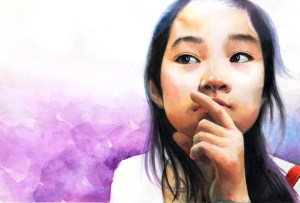We support our Publishers and Content Creators. You can view this story on their website by CLICKING HERE.
We should not try to right one historic wrong by committing a new one. After enduring over a century of white racism, now the Asian-American community must cope with a more subtle but just as sinister form of liberal racism: the harsh Orwellian reality that in modern America all minorities are equal, but some minorities are more equal than others.
 I was about 7 years old when I first heard the phrase. My father had taken me to a war movie in which the white commanding officer had died and a black soldier had taken his place. I was confused about why some of the troops resented the new commander and wouldn’t obey him. My father explained quietly, but with a seething fury, that the other soldiers believed that the black soldier “didn’t know his place.” He furthered explained that it is always the person who matters and not the color. It was ten years later before I heard that phrase again, this time while working one summer in a small office in Camden, New Jersey. The two white female employees were whispering about how much they couldn’t stand the third female employee, a middle-aged black woman who was, as best as I could discern, the most competent and intelligent of the three. But regardless her good qualities, or maybe because of them, she somehow “didn’t know her place.”
I was about 7 years old when I first heard the phrase. My father had taken me to a war movie in which the white commanding officer had died and a black soldier had taken his place. I was confused about why some of the troops resented the new commander and wouldn’t obey him. My father explained quietly, but with a seething fury, that the other soldiers believed that the black soldier “didn’t know his place.” He furthered explained that it is always the person who matters and not the color. It was ten years later before I heard that phrase again, this time while working one summer in a small office in Camden, New Jersey. The two white female employees were whispering about how much they couldn’t stand the third female employee, a middle-aged black woman who was, as best as I could discern, the most competent and intelligent of the three. But regardless her good qualities, or maybe because of them, she somehow “didn’t know her place.”
Full disclosure. My youngest child is of Filipino descent. Thoughtful, sensitive, and talented, he is, in my shamelessly biased view, a marvel. But as he now enters his penultimate year of high school and the mad scramble for university begins, I know he is, despite all his natural advantages, at a profoundly racist-driven disadvantage. Much sadder, he knows it too. He struggles, however, against accepting it because unlike his father, he has a warm, youthful kindness that compels him to defend those of his peers who will have an unfair, racially-motivated advantage over him. And he doesn’t yet know that this same prejudice against him will only worsen after university when he enters the job market. For example, his chances to follow in his parents’ footsteps and join the diplomatic corps will be reduced simply because he is of Asian descent and Asian-Americans are already over-represented in the Foreign Service.
Each year the iron grip of our developing Libertopia tightens and eventually the government will enforce quotas at schools and the workplace to ensure racial equity, to advance diversity, and to redress past iniquities. We see this developing in New York City where the racialist mayor is trying to manipulate a new scheme to limit the number of Asian-Americans that can enter that city’s best high schools. We see it at various Ivy League universities, such as Harvard, which has strictly limited Asian-American students to only 19% of the student body, whereas by one estimate, if decisions were made only on the basis of academic achievement, Harvard would have had to tolerate a student body that is 43% Asian-American. Even here in Fairfax County, Virginia, this enforced equality is increasingly inevitable. We have a special high school for many of our more talented students that is named (at least for now) Thomas Jefferson High School for Science and Technology. On July 28 The Washington Post in a deceptively crafted editorial called upon Thomas Jefferson to ensure greater numbers of minority students who are currently woefully underrepresented. What the editorial fails to mention is that ensuring a greater number of black and Hispanic students will require reducing the number of another “people of color”—Asian-Americans. Currently, Asian-Americans comprise 73% of the incoming freshman class, even though Asian-Americans comprise only about 19% of Fairfax Country’s population. A stunning racial imbalance that puts all other racial groups, including white students, on notice that they are failing to keep up academically.
There are, of course, those Asian-Americans who harbor misgivings about their success and express support for more diverse diversity. Last October The Washington Post ran an op-ed by an Asian-American Harvard graduate who explained why affirmative action and diversity are important objectives, and there are even some current Asian-American students at Thomas Jefferson who wring their hands guiltily and support greater diversity at their school. But the one thing all these Asian-Americans have in common is that they themselves will not suffer any loss; they have already benefitted from a more objective, honest system that they now want to change. In other words, the Asian-Americans who are loudest in their support for a rigid, Procrustean proportioning based upon race and who are racked with a pseudo-self-guilt are those that have already made the cut. It will be those Asian-Americans that come after them that will have to sacrifice their futures for the greater good of diversity. These proponents of diversity within the Asian-American community would have more credibility if they were to make it personal: give up your acceptance to Harvard or Thomas Jefferson to another less deserving but more diverse applicant. Until they are ready to do that, their angst and wokeness reek of hypocrisy. And what is true in academia is even more true about my former colleagues in the State Department. For decades there has been great consternation that not enough minorities (other than Asian-Americans) join the Foreign Service and that currently there are only a small handful of minority ambassadors. A large number of white ambassadors are ashamed and even outraged by this. Yet, none of them would be willing to give up his or her own ambassadorship to make room for a minority ambassador. Instead, they want future appointees to make the sacrifice to ease their conscience.
In this brave new world we are building, the message to Asian-Americans is clear: Enjoy your fair share, but no more than your fair share. You are 5.6 percent of the population so you will get approximately 5.6 percent of the pie. That is only fair, only right. Don’t be selfish. Diversity, regardless the cost and regardless the injustice, is our noble quest. To dismiss the hard work of one group that has already done far too well is not too great a sacrifice at the sacred altar of diversity. Admissions to universities and positions in business and government cannot to be filled merely on the basis of individual merit, but rather in accordance with strict notions of racial equity. You must not delude yourself into thinking individual worth is more important than group diversity. Learn your place. And the first lesson in learning your place is keeping your mouths shut and being grateful that you live in such an open and equitable society.
All of this is not to say that there shouldn’t be flexibility and reasonableness in the selection of students or in hiring. Those who have had more difficult lives, who live in an impoverished neighborhood, whether that neighborhood is in an inner city or Appalachia, who have studied at less wealthy schools or who have come from broken families, should get some special consideration to level the playing field. But these are all socio-economic factors and not ones that are based on race or ethnicity. Indeed, there are certain subsets of the Asian-American community that would also benefit from taking into consideration various socio-economic factors, including Americans of Vietnamese, Cambodian, and other Southeast Asian descent. The Asian-American community is not monolithic—they don’t all attain the same level of academic excellence. However, to make these factors truly fair—and Constitutional—these socio-economic considerations must be colorblind.
But a reasonable, fair, and equal application of socio-economic factors is not the liberal ideal. Rather, there is a yearning to create a more perfect union in which each group is represented in each university and workplace in rough proportion to its percentage of the population. The notion that the individual should take precedence over the group is as unthinkable to the modern liberal as it was to the white racist of past generations. Indeed, liberals are aghast that even natural phenomena like viruses and hurricanes do not make people suffer in perfect proportion to their percentage of the population. They do not seem to be fully conscious of the fact that this is a zero-sum situation. Each time school standards are lowered or weakened or modified to admit one person, another person, with better credentials, is being denied entry. When you say a school needs more diversity, are you not being racist? Are you not at least implicitly saying that Asian-Americans are not unique individuals? Are you not saying that they all look alike, think alike, feel alike, and act too much alike?
We should not try to right one historic wrong by committing a new one. But this is exactly what we as a nation are striving to do and the Asian-American community is learning a difficult lesson that many do not want to accept. After enduring over a century of white racism, now they must cope with a more subtle but just as sinister form of liberal racism. They are slowly realizing the harsh Orwellian reality that in modern America all minorities are equal, but some minorities are more equal than others.
This essay was first published here in August 2020.
The Imaginative Conservative applies the principle of appreciation to the discussion of culture and politics—we approach dialogue with magnanimity rather than with mere civility. Will you help us remain a refreshing oasis in the increasingly contentious arena of modern discourse? Please consider donating now.
The featured image is courtesy of Pixabay.
Share This Story, Choose Your Platform!
Go to Top

 Conservative
Conservative  Search
Search Trending
Trending Current News
Current News 





